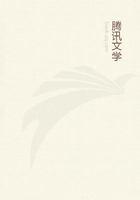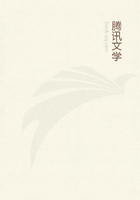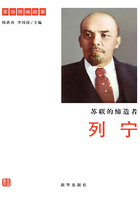When I returned to Chicago from the quiet country I saw the Federal troops encamped about the post office; almost everyone on Halsted Street wearing a white ribbon, the emblem of the strikers' side; the residents at Hull-House divided in opinion as to the righteousness of this or that measure; and no one able to secure any real information as to which side was burning the cars. After the Pullman strike I made an attempt to analyze in a paper which I called The Modern King Lear the inevitable revolt of human nature against the plans Mr. Pullman had made for his employees, the miscarriage of which appeared to him such black ingratitude. It seemed to me unendurable not to make some effort to gather together the social implications of the failure of this benevolent employer and its relation to the demand for a more democratic administration of industry. Doubtless the paper represented a certain "excess of participation," to use a gentle phrase of Charles Lamb's in preference to a more emphatic one used by Mr. Pullman himself. The last picture of the Pullman strike which I distinctly recall was three years later when one of the strike leaders came to see me. Although out of work for most of the time since the strike, he had been undisturbed for six months in the repair shops of a street-car company, under an assumed name, but he had at that moment been discovered and dismissed. He was a superior type of English workingman, but as he stood there, broken and discouraged, believing himself so black-listed that his skill could never be used again, filled with sorrow over the loss of his wife who had recently died after an illness with distressing mental symptoms, realizing keenly the lack of the respectable way of living he had always until now been able to maintain, he seemed to me an epitome of the wretched human waste such a strike implies. I fervently hoped that the new arbitration law would prohibit in Chicago forever more such brutal and ineffective methods of settling industrial disputes.
And yet even as early as 1896, we found the greatest difficulty in applying the arbitration law to the garment workers' strike, although it was finally accomplished after various mass meetings had urged it. The cruelty and waste of the strike as an implement for securing the most reasonable demands came to me at another time, during the long strike of the clothing cutters.
They had protested, not only against various wrongs of their own, but against the fact that the tailors employed by the custom merchants were obliged to furnish their own workshops and thus bore a burden of rent which belonged to the employer. One of the leaders in this strike, whom I had known for several years as a sober, industrious, and unusually intelligent man, I saw gradually break down during the many trying weeks and at last suffer a complete moral collapse.
He was a man of sensitive organization under the necessity, as is every leader during a strike, to address the same body of men day after day with an appeal sufficiently emotional to respond to their sense of injury; to receive callers at any hour of the day or night; to sympathize with all the distress of the strikers who see their families daily suffering; he must do it all with the sickening sense of the increasing privation in his own home, and in this case with the consciousness that failure was approaching nearer each day. This man, accustomed to the monotony of his workbench and suddenly thrown into a new situation, showed every sign of nervous fatigue before the final collapse came. He disappeared after the strike and I did not see him for ten years, but when he returned he immediately began talking about the old grievances which he had repeated so often that he could talk of nothing else. It was easy to recognize the same nervous symptoms which the broken-down lecturer exhibits who has depended upon the exploitation of his own experiences to keep himself going. One of his stories was indeed pathetic. His employer, during the busy season, had met him one Sunday afternoon in Lincoln Park whither he had taken his three youngest children, one of whom had been ill. The employer scolded him for thus wasting his time and roughly asked why he had not taken home enough work to keep himself busy through the day. The story was quite credible because the residents of Hull-House have had many opportunities to see the worker driven ruthlessly during the season and left in idleness for long weeks afterward. We have slowly come to realize that periodical idleness as well as the payment of wages insufficient for maintenance of the manual worker in full industrial and domestic efficiency, stand economically on the same footing with the "sweated" industries, the overwork of women, and employment of children.
But of all the aspects of social misery nothing is so heartbreaking as unemployment, and it was inevitable that we should see much of it in a neighborhood where low rents attracted the poorly paid worker and many newly arrived immigrants who were first employed in gangs upon railroad extensions and similar undertakings. The sturdy peasants eager for work were either the victims of the padrone who fleeced them unmercifully, both in securing a place to work and then in supplying them with food, or they became the mere sport of unscrupulous employment agencies.















